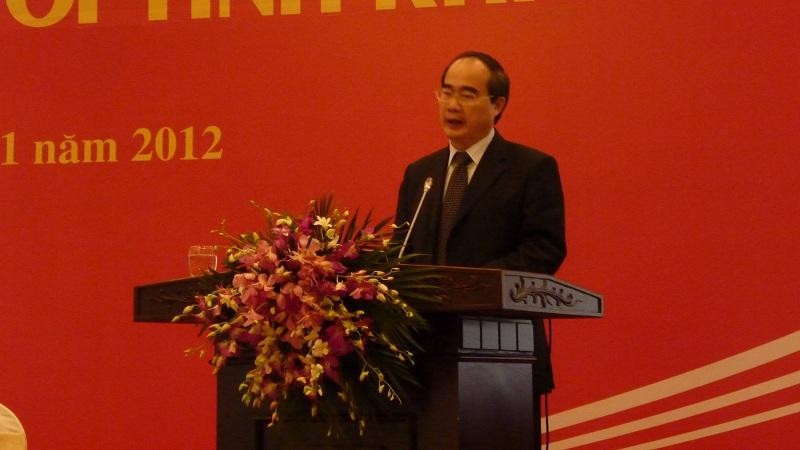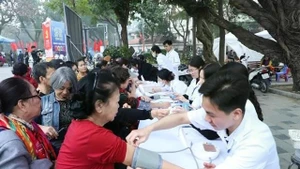The meeting was chaired by Deputy Prime Minister Nguyen Thien Nhan, with the participation of the MoH, GOPFP, and the United Nations Population Fund (UNFPA), and attended by representatives from provinces and cities across the country, central agencies, top international population experts, mass organisations and the media.
Addressing the workshop, Deputy PM Nhan emphasised the significant role of propaganda in raising public awareness of the serious consequences of the sex ratio at birth (SRB) imbalance.
He recommended that the MoH work closely with the Ministry of Education and Training to introduce effective, comprehensive sex education in schools and promote gender equity among the students, who are the country’s next generation.
The Deputy PM also called for enthusiastic participation from mass organisations such as the Vietnam Women’s Union, and particularly the Ho Chi Minh Communist Youth Union, in disseminating information on the negative effects of an imbalanced SRB.
At the conference, Deputy PM Nhan heard a general report from the Deputy Minister of Health, Nguyen Viet Tien, about the SRB imbalance in Vietnam.
He said Vietnam’s SRB widened by only 0.1% annually for two decades from 1979 to 1999, recording 105 boys per 100 girls in 1979 to 107 boys per 100 girls in 1999, but the ratio has been on the rise since 2006.
Tien also pointed out that the SRB is proportionally higher in urban areas with better economic conditions, as well as among wealthier families and highly educated women.
It is estimated that Vietnam will have a surplus of 2.3-4.3 million men in the future if measures are not taken to decrease the SRB gap, he said.
UNFPA representative in Vietnam Mandeep O’Brien said at the workshop that around 117 million women across Asia are “missing” today due to the current SRB imbalance, and this pressing issue is becoming increasingly challenging in Vietnam.
There is ample evidence in Asia, particularly in Vietnam, that this imbalance is mainly the result of pre-natal sex selection, which is related to long-standing cultural traditions that favour sons and underestimate the value of daughters, she said.
The imbalanced SRB will adversely influence the structure of Vietnam’s future population and result in an excess of males in the society, which could possibly lead to a scarcity of women or a rise in prostitution and the trafficking of women.
Mandeep also put forward some recommendations to tackle this issue, including boosting propaganda via mass media; promoting and strengthening the role of women and girls in society; and ensuring accuracy in collecting local and central SRB data and figures to facilitate timely and relevant interventions.
She reaffirmed the UNFPA’s commitment to join hands with the Vietnamese Government and work to put an end to this urgent issue.
A press briefing was also organised within the workshop's framework to provide a platform for reporters and journalists to exchange views with UN population experts and gain further information and clarification of more complex SRB-related issues.
















